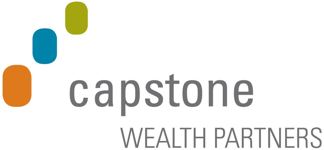Finding Money for College
By Joe Messinger, CFP®
January 28, 2022
Updated January 2022.
We hear the question all the time:
“Where can I find scholarships for my child?”
Typically, when clients ask this, we will direct them to a few sources like their guidance counselor, online searches (like Fastweb.com, scholarships.com, Scholarship America, bigfuture.collegeboard.org, Cappex.com), or various local foundations.
While private scholarships are great and students should explore these options, families need to focus on the number one source for college gift aid–the colleges themselves!
50-75% of families who use scholarships get them from the college they will be attending. Where can families find free money for college? The college they’re applying to!
We highly recommend leveraging our free College Money Report™ to find scholarship opportunities through the colleges your student is applying to.
When it comes to finding the money to pay for college, the four primary sources are:
- Federal government
- State government
- Colleges and universities
- Private organizations and foundations
The solution? Finding those colleges that will provide merit-based gift aid in the form of scholarships. In 2020, “scholarships alone covered 25 percent of college costs,” and there is still money being left unused.
When looking for college money, always seek out what you don’t have to pay back first.
So, you don’t qualify for need-based grant aid? Loans and work-study are not exactly “gift aid” because you either pay them back in money or the student’s time. We call them self-help. Private scholarships are competitive, take time the student may have a short supply of, and account for a small slice of the scholarship pie.
Families can focus on the bigger chunk of free money, and this truth…colleges compete for talented students. Part of the way they do this is by making the price attractive and more affordable.
How can families find colleges that will provide scholarships to their students?
First, families need to know that some colleges do not provide merit aid at all or it is extremely limited to only a handful of top incoming students. Often families are surprised by this. Colleges such as Northwestern, Notre Dame, (and many more) or flagship state universities like the University of Michigan or the University of North Carolina are not going to provide academic merit scholarships to your student.
They only provide need-based aid. Their applicants are all academically talented. They don’t need to compete for students. They provide aid to encourage opportunity for all.
How do you know which colleges provide merit aid? A quick Google search can help. Google “Penn State merit scholarships,” and the quick reply is “Penn State does not offer standard merit awards for students who fit particular profiles” from their admissions page. On the flip side, Google “Miami University merit scholarships,” and the result is their page spelling out all the scholarships they provide.
As a side note, colleges that don’t provide merit aid may have slightly broader definitions of who qualifies for need-based aid, and they may pay 100% of that need. If a family is a borderline need-based aid candidate, it is worth looking closely at these schools.
Understand the student’s fit in the college’s applicant pool.
What do we mean? Often referred to as student positioning. The admission decisions are made up of several factors, but the primary ones are GPA, test scores, and academic curriculum.
Families can use a website like collegedata.com to look up a college and compare their student’s GPA and test scores with those of their preferred colleges. If the student’s data is higher than the middle 50%, they have a better chance of receiving merit aid from that school (if they have aid to give).
Spend your time wisely.
While private scholarships are worth exploring up to a point, do not ignore the larger source of money for college…the colleges themselves!
Dig into whether or not a college provides merit scholarships and how a student matches up with the others they are competing against to get into their ideal university.
Have questions? Reach out! We’re happy to help in any way we can.


